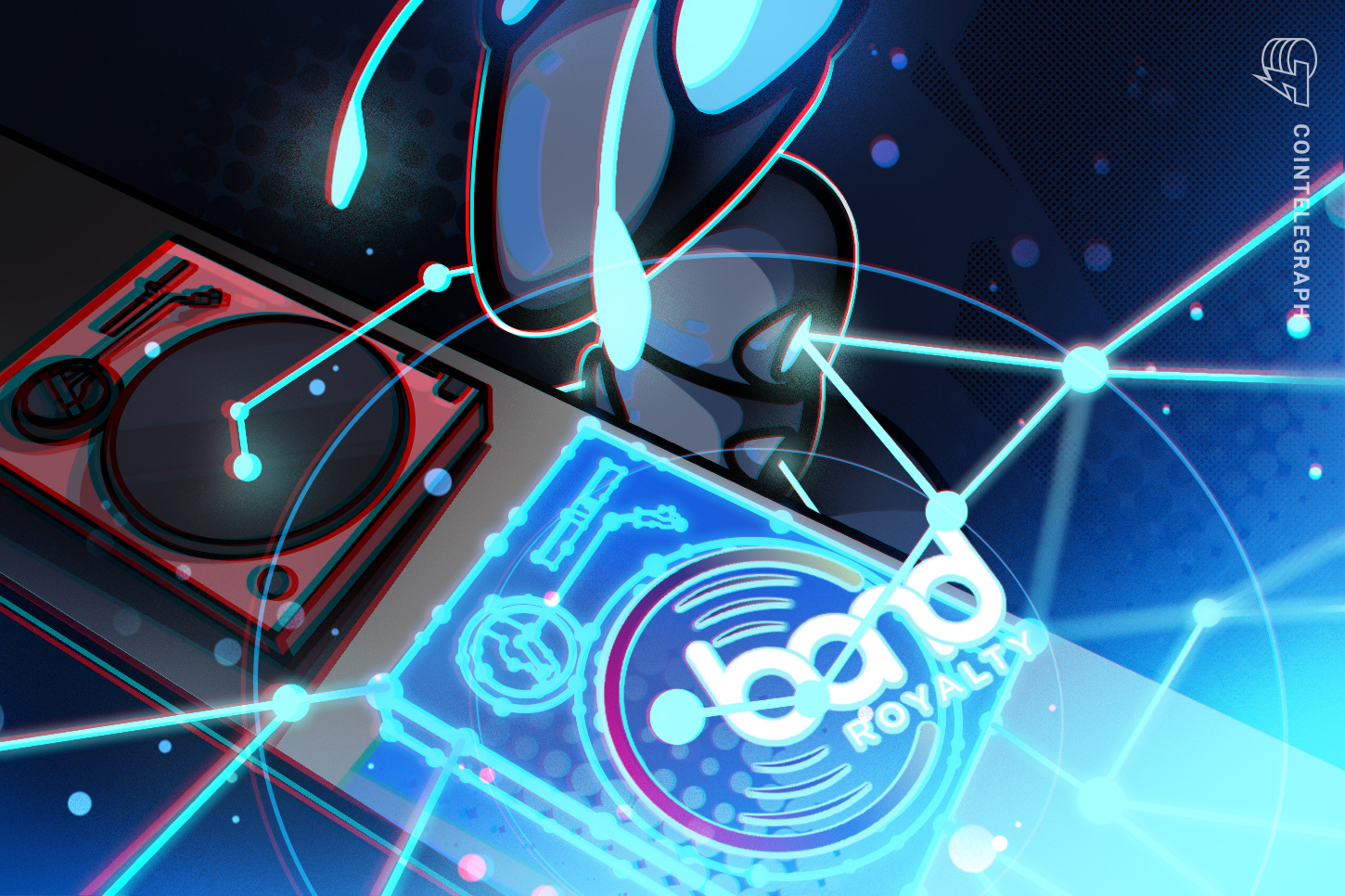Sponsored Content
Blockchain platform Band Royalty is tackling the music industry’s royalty “black box” with a Solana-based ledger, its RYLT token and multi-track NFTs for fractional ownership.
For decades, musicians have asked the same question: “Where’s my money?” From vinyl records to streaming platforms, the music industry has grown into a significant market, generating over $40 billion in 2024. Yet, billions in royalties vanish into a so-called “black box,” lost to outdated systems, missing metadata and complex global reporting rules.
This is the problem at the heart of Band Royalty, a platform that uses Web3 technology to enhance the core Web2 capabilities of the existing music industry. The platform gives artists, fans and investors access to transparent royalties and fractional ownership. By combining blockchain technology with modern finance, Band Royalty aims to modernize how the music industry tracks and distributes revenue.
The music royalty “black box”
In the physical media era, royalty calculations were simpler. Streaming shattered that model. Each streamed song now generates royalties across multiple categories — mechanical, performance, sync and user-generated content — across multiple territories.
Missing or inaccurate metadata, such as incomplete ISRC or ISWC codes or misattributed splits, causes $2-4 billion in royalties to go unclaimed each year, according to Band Royalty. Traditional systems delay payouts 12-18 months, and funds often never reach independent artists or smaller rights holders.
Band Royalty addresses this black box by leveraging the Solana blockchain. Its high throughput of over 50,000 transactions per second and low fees make royalty micro-payments viable at scale.
Using this infrastructure, smart contracts can enable instant, automated payments, while the immutable nature of blockchain creates a permanent and transparent record of ownership that artists and investors can track globally.
This transparent ledger empowers artists to future-proof their music catalogs and access alternative lending, while allowing investors of the native token, RYLT, to help finance the company and the potential acquisition of new music catalogs.
Blockchain music and a platform token
The RYLT token is the centerpiece of Band Royalty’s Music DeFi ecosystem. The launch of RYLT is designed to turn royalty streams into tradable, stakeable assets. It enables artists to tokenize portions of their future royalties, creating upfront liquidity for creators and an opportunity for fractional ownership.
The token also serves as the core of the ecosystem, used for staking, rewards, platform governance and integration into broader decentralized finance (DeFi) applications like lending and borrowing.
For example, an indie artist’s viral single might traditionally take months for payouts to arrive. With RYLT, those future earnings can be tokenized immediately via smart contracts to fund tours or new projects, while fans can participate in the artist’s success.
Multi-track NFT: Monetizing music in layers
Beyond royalty payments, Band Royalty has also introduced a new primitive: the multi-track music non-fungible token (NFT). Instead of a single audio file, collectors can own and interact with the individual stems of a song — such as the vocals, drums or bassline.
This layered approach allows fans to legally create remixes with automatic royalty splits for the original artists. It also enables producers to license individual stems for new projects, allowing rights holders to monetize each part of a song independently.
Real-world music DeFi scenarios
Artist funding: Indie artists tokenize 25% of future royalties. Fans purchase RYLT to fund music videos or tours.
Catalog investment: Investors gain fractional ownership of legacy catalogs, receiving quarterly RYLT payouts.
Instant sync payments: When a company licenses a track, smart contracts distribute fees instantly to all rights holders.
By combining a transparent onchain ledger with a tokenized economic model and new creative tools, Band Royalty is offering a new template for the music industry. Initiatives like this have the potential to shift the power dynamic, ensuring that the value generated by music flows back to the creators, communities and investors who make it possible.
Disclaimer. Cointelegraph does not endorse any content or product on this page. While we aim at providing you with all important information that we could obtain in this sponsored article, readers should do their own research before taking any actions related to the company and carry full responsibility for their decisions, nor can this article be considered as investment advice.
Disclaimer.This content is part of a paid partnership. The text below is a sponsored article that is not part of Cointelegraph.com editorial content. The material is written by our advertorial team and has undergone editorial review to ensure clarity and relevance, it may not reflect the views and opinions of Cointelegraph.com. Readers are encouraged to conduct their own research before taking any actions related to the company. Disclosure.


